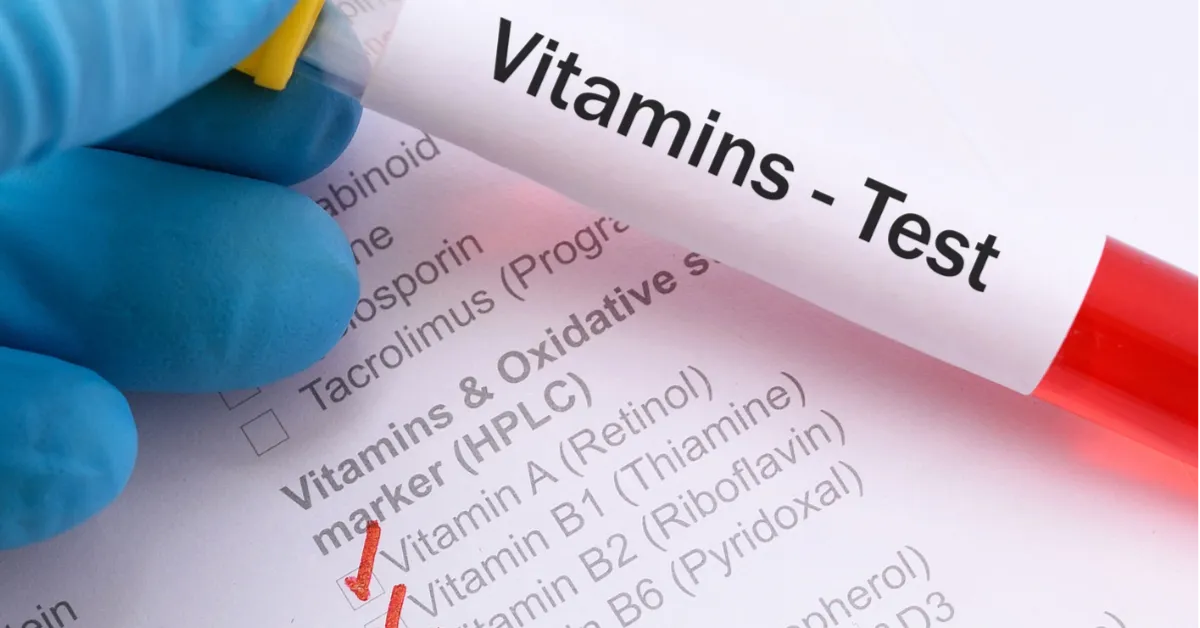EN 17053 Vitamin B1 (Thiamine) Profiling in Grain-Based Products
The European Standard EN 17053 provides a comprehensive methodology for the determination of thiamine, also known as Vitamin B1, in grain-based products. This standard is particularly relevant for ensuring compliance with regulatory requirements and maintaining product quality across various sectors including food production, feed manufacturing, and pharmaceuticals.
Vitamin B1 plays a crucial role in energy metabolism, nerve function, muscle contraction, and the production of red blood cells. Ensuring accurate measurement of this nutrient is essential to prevent deficiencies that can lead to health issues such as beriberi or neurological disorders.
EN 17053 specifies an analytical procedure using High-Performance Liquid Chromatography (HPLC) with fluorescence detection for the quantification of thiamine in grain-based products. The standard outlines detailed steps for sample preparation, extraction, and analysis to ensure precision and accuracy. Compliance with this standard is mandatory for manufacturers and distributors aiming to meet regulatory requirements set forth by bodies like the European Commission.
Our laboratory adheres strictly to EN 17053 guidelines to deliver reliable results that can be trusted by quality managers, compliance officers, research & development engineers, and procurement teams. We offer a range of services designed specifically for grain-based products, ensuring that every batch meets stringent nutritional standards.
The process begins with meticulous sample preparation, where we carefully select representative samples from the production lot to ensure variability is accounted for in our analysis. Following extraction using appropriate solvents, the thiamine content is quantified through HPLC equipped with fluorescence detection. This method allows us to detect even trace levels of thiamine, providing highly accurate results.
Our expertise lies not only in adhering strictly to EN 17053 but also in interpreting these results within the broader context of food safety and quality control. Our analysts are well-versed in understanding how variations in thiamine content can impact product performance and consumer health, allowing us to offer actionable insights beyond mere compliance.
By choosing our laboratory for EN 17053 testing, you benefit from state-of-the-art equipment, experienced personnel, and a commitment to delivering high-quality results that meet or exceed industry standards. Whether it's routine quality assurance checks or one-off verification tests, we provide tailored solutions to fit your specific needs.
Our service is designed to support your business goals by ensuring consistent product quality, enhancing brand reputation, and meeting regulatory requirements efficiently. With our comprehensive approach, you can rest assured that every test conducted adheres rigorously to EN 17053, providing peace of mind for both internal stakeholders and external partners.
Applied Standards
| Standard | Description |
|---|---|
| EN 17053 | Detailed methodology for the determination of thiamine in grain-based products using HPLC with fluorescence detection. |
| ISO 9426 | Guidelines for quality assurance and control systems in laboratories. |
| ASTM E17053 | Alternative American standard for thiamine determination, aligned with EN 17053 but tailored to US markets. |
| IEC 62884 | International guidelines for traceability and validation of analytical methods in laboratory settings. |
The application of these standards ensures consistency, reliability, and accuracy in our testing procedures. By adhering to international best practices, we guarantee that your products meet the highest quality standards required by regulators and consumers alike.
Customer Impact and Satisfaction
The implementation of EN 17053 vitamin B1 profiling in grain-based products directly impacts customers by ensuring that the nutritional content is accurately reported. This transparency builds trust between suppliers and buyers, fostering long-term relationships based on reliability.
Our commitment to customer satisfaction translates into quick turnaround times for test results, detailed reports tailored to specific requirements, and regular communication throughout the testing process. We understand that timely delivery of accurate data is crucial for maintaining production schedules and responding promptly to any quality issues discovered during testing.
To further enhance customer experience, we offer additional value-added services such as consultation on optimal sample collection methods, training sessions on interpreting test results, and recommendations for improving product formulations based on our findings. These proactive measures demonstrate our dedication to supporting your business success beyond just meeting compliance requirements.
Use Cases and Application Examples
In the food sector, accurate thiamine profiling is vital for ensuring that grain-based products meet nutritional labeling requirements. For instance, manufacturers of breakfast cereals or breads need to verify whether their formulations comply with dietary recommendations set by health authorities.
The feed industry also benefits significantly from EN 17053 compliance. Ensuring adequate levels of thiamine in animal feeds supports optimal growth and reduces the risk of nutritional deficiencies among livestock. This is especially important for large-scale operations where consistency across batches is critical.
For pharmaceutical companies, our service ensures that any supplements containing thiamine are manufactured to precise specifications. This precision guarantees that patients receive products that deliver consistent therapeutic benefits without variability due to manufacturing inconsistencies.
A real-world example would be a bakery chain expanding into new markets where local regulations mandate specific levels of vitamins in their products. By leveraging our EN 17053 vitamin B1 profiling service, they can ensure that all their products meet these requirements seamlessly across different regions.





